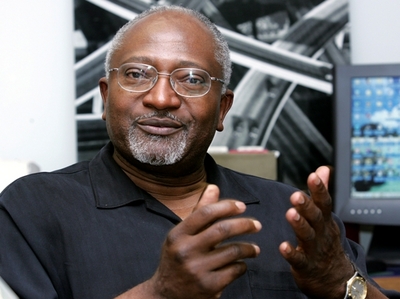Thousands of environmental leaders from around the world will converge on Rio de Janeiro this week for the United Nations Conference on Sustainable Development or Rio+20. Some twenty years earlier, in 1991, the United Church of Christ Commission for Racial Justice convened the four-day First National People of Color Environmental Leadership Summit in Washington, DC. And on October 27, Summit delegates adopted 17 " Principles of Environmental Justice." Will the world leaders take notice of these Principles this time around?
After two decades, the principles-- developed as a guide for organizing, networking, and relating to each other as people of color, nongovernmental organizations (NGOs), and government--will make their way again to the Rio+20 conference. The principles were designed to strengthen cross-disciplinary research and policy work, cross-racial and cross-sectors alliances, coalitions, and partnerships, and multi-generational organizing, leadership development and just sustainability--that argues that social and environmental justice within and between nations should be an integral part of the policies and agreements that promote sustainable development.
Over 1,000 delegates attended the Summit. Delegates came from all fifty states including Alaska and Hawaii, Puerto Rico, Chile, Mexico, and as far away as the Marshall Islands. Delegates attended the Summit to share their stories, redefine the environmental movement, and develop common plans of action for addressing environmental, economic, health and human rights problems affecting people of color and indigenous in the United States and around the world. The Summit broadened environmental justice issues beyond the narrow anti-toxics focus to include issues of public health, worker safety, land use and land rights, transportation, energy, food and water security, and climate. Moreover, the Summit demonstrated that it is possible to build a multi-racial grassroots movement around environmental and economic justice.
Summit planners understood the connection between the outcome of the U.S. gathering and United Nations Conference on Environment and Development (UNCED) or Earth Summit set for Rio de Janeiro in June 1992. Summit planners were determined to get their work products--the Call to Action and Principles of Environmental Justice--adopted as a framing lens through which global environmental and economic justice challenges were viewed and acted upon around the world.
This was an ambitious goal--one which many naysayers mouthed was a waste of time, energy and money for groups and communities who were severely under-resourced. Nevertheless, a few dedicated souls invested their time and energy and raised the money to get a few dozen EJ leaders to the 1992 Rio Earth Summit--attended by 179 governments, over 2 000 NGOs and some 10,000 journalists. The EJ presence m ay have been small in number, but the message of global environmental justice resonated across the various Global Forum venues.
By June 1992, the Principles had been translated into a dozen languages and circulated by hundreds of NGOs and environmental justice groups at the Earth Summit. Clearly, the Rio meeting was not a waste by any objective metric. EJ was now global. The Rio EJ gatherings set the stage and provided the impetus for adding "justice" to a number of emerging social movements--including climate justice, energy justice, transportation justice, food justice, green access and parks justice, etc.
Over the next week more than 50,000 leaders are expected in Rio de Janeiro to attend the Rio+20 Conference on Sustainable Development. A lot has changed in the Environmental Justice Movement and in the world over the past two decades. Unfortunately, a lot has stayed the same, and in some cases environmental health threats to the poor, people of color and indigenous peoples have actually worsened as in the case of climate change--yielding a climate gap with EJ communities hit first, worst and longest. Environmental justice leaders have been working tirelessly in communities on the frontline of environmental assault and to get the "Principles of Environmental Justice" and just sustainability infused into the Rio+20 talks, language and negotiations. A broad coalition of groups have expressed concern about the invisibility of environmental justice in the Rio+20 text. Much work is still needed. For the full text of the Principles click HERE .





